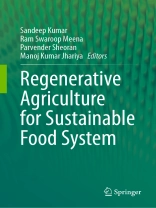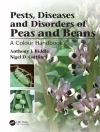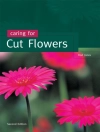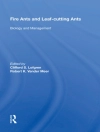This book aims to present a comprehensive collection of information that combines improved soil and crop productivity, climate-based stress management, enhanced research infrastructure, financial assistance for regenerative technologies, and government subsidies and economic incentives. Considering the importance of soil biodiversity, health, and ecological balance, this book primarily focuses on effective plans and policies for soil management and restoration in agricultural soils.
The book covers key areas such as advancing communication strategies to ensure subsidies and incentives for carbon-sequestering farm practices and effectively publicizing the benefits of soil carbon, health, and regenerative practices. It also includes the declaration of rules and regulations to guide policies, programs, and investments in green technologies for soil restoration and ecosystem services, and forming a robust virtual network among farmers, land managers, and their associations to prepare action plans and seek available funding for regenerative farm practices and technologies. Additionally, it promotes research and developmental activities on carbonaceous practices and land-use decisions across various agro-ecological regions and soil types. The central theme emphasizes that maintaining the ecological balance of soil, plants, the environment, and health is crucial for a healthier life and serves as a powerful tool in combating climate change, food and nutritional insecurities, and other environmental concerns.
This book is suitable for teachers, researchers, scientists, government planners, policymakers, and students of agricultural sciences. It will also interest national and international climate change scientists, extension workers, and capacity builders.
Cuprins
Chapter 1. Regenerative Agriculture for Sustainable Food System: An Overview.- Chapter 2. The Transition from Conventional Farming to Regenerative Agriculture: Problem, Global Reality and Future Perspectives.- Chapter 3. Regenerative Agriculture: Potential, Progress, Opportunities, and Challenges.- Chapter 4. Regenerative Agriculture for Climate Change Mitigation and Food Security.- Chapter 5. Regenerative Agriculture and Sustainable Development Goals.- Chapter 6. Regenerative Organic Farming for Encouraging Innovation and Improvement of Environmental, Social, and Economic Sustainability.- Chapter 7. Transforming Land Use for Protecting and Regenerating Soil in Farmland and Forests.- Chapter 8. Restoring Soil Health of Degraded Lands through Eco-Friendly Nutrient Management Practices in Regenerative Agriculture.- Chapter 9. Enhancing Nutrient Recycling through Regenerative Practices under Different Agro-Ecosystems.- Chapter 10. Regenerative Nutrient Management Practices for Enhancing Plant Nutrition and Soil Healt.- Chapter 11. Building Soil Biological Ecosystem to Restore Soil Microbial Population through Regenerative Crop Management Practices.- Chapter 12. Sustainable Plant Protection Measures in Regenerative Farming.- Chapter 13. Regenerative Agroforestry for Soil Restoration, Biodiversity Protection and Climate Change Mitigation.- Chapter 14. Biotechnology for Advancing Regenerative Agriculture: Opportunities and Challenges.
Despre autor
Dr. Sandeep Kumar is working as a scientist (Agronomy) at the ICAR-Indian Agricultural Research Institute, Regional Station, Karnal, India. He is working on enhancing resource use efficiencies in conservation agriculture-based rice-wheat systems for sustainable crop production. As an editor and author, he has published eight books with international publishers. Dr. Sandeep has published over 50 research/review papers in leading national and international peer-reviewed journals with high impact factors up to a NAAS rating 20.0 and has also contributed to more than 50 book chapters. Dr. Sihag has won the Land 2020 Best Paper Award from MDPI and Willey’s Top cited article 2022-2023 in Land Degradation & Development Journal. He is an active reviewer of various highly reputed journals, e.g., Journal of Cleaner Production, Agricultural Water Management, Soil and Tillage, European Journal of Agronomy, Plant and Soil, PLOS Sustainability, Agriculture, One and many others. He has received numerous awards, including Young Scientist, Best Paper Award, Best Research Scholar, and Best Master’s Thesis awards from prestigious National societies. He has 4000+ citations with an h-index over 37.
Dr. Ram Swaroop Meena is working in the Department of Agronomy, Institute of Agricultural Sciences, BHU, Varanasi (UP). Dr. Meena has secured first division in all the classes with triple NET, JRF, and SRF from the ICAR and RGNF Awardee from the UGC, GOI. He is a Fellow of the National Academy of Agricultural Sciences (FNAAS) and the National Academy of Biological Sciences (FNABS) and Fellow Society for Rapeseed-Mustard Research. He was a visiting scientist at IRRI-ISARC under an INSA fellowship. Dr. Meena has been awarded the Raman Research Fellowship by the Ministry of Education, GOI. He has been listed in the World’s Top 2% Scientists by the Stanford University, USA, and Elsevier report. He has experience with ten externally funded projects as PI/Co-PI, including running projects from Io E, BHU, SERB-DST, ICAR, MOE, GOI. He has the right to one patent on low-cost biochar preparation. Dr. Meena has published more than 120 international research and review papers in peer-reviewed reputed journals with an H-index of 64, an I-10 index of 170, citations over 12, 000 and a total impact factor of 398.37, with the highest 16 and average of 3.9 impact factor. He has published 30 books , and contributed 95 chapters. His research interest is to reduce soil organic carbon oxidation and enhance stability in agroecosystems for farmers’ benefit through carbon credits.
Dr. Parvender Sheoran is the Director, ICAR-Agricultural Technology Application Research Institute (ICAR-ATARI), Zone-I, Ludhiana, Punjab. He obtained his Ph.D. in the Agronomy discipline (2003) from CCS Haryana Agricultural University, Hisar. He has also been an adjunct professor/ PG teacher at CCS Haryana Agricultural University, Hisar, India, since 2018. His current areas of interest include developing location-specific best management practices (soil, water and crop) for sustainable crop production and exploring adaptation and mitigation strategies to enhance resource use efficiency in different agro-ecosystems. Dr. Sheoran has made research contributions in the fields of weed management, oilseed agronomy and salinity management. He is the recipient of the Swami Sahajanand Saraswati Outstanding Extension Scientist Award (2021); Dr. PS Deshmukh Young Agronomist Award (2018); Australian Award Fellowship (2017); AICRP Team Award (2014); CSSRI Best Scientist Award (2018); Fellow of Indian Society of Weed science (2018) and Indian Society of Oilseeds Research (2019); among others. He has been involved in the development of 7 improved varieties/hybrids of the oilseed’s crops (mustard, sunflower, linseed and sesame) released at the National/State level and 12 farmers’ worthy technological recommendations being included in the Package of Practices for Kharif/Rabi Crops of Punjab/Haryana state. He has also developed a mobile app, ‘Salinity Expert, ’ to aid the traditional extension methods in disseminating salinity management technologies. Teaching experience of more than 12 years, publication of more than 100 Research papers; 30 success stories, five book chapters, 38 extension articles, five documentations, five technical bulletins, eight training manuals and organization/association in several Kisan Melas/Capacity Building Programme/Field days/Kisan Goshthies/exhibitions demonstrate the substantial efforts made towards teaching, research and extension activities in the field of Agronomy.
Dr. Manoj Kumar Jhariya is an Assistant Professor and HOD in the Department of Farm Forestry at Sant Gahira Guru Vishwavidyalaya (Formerly, Sarguja University), Sarguja, Ambikapur, Chhattisgarh, India, and is the author or co-author of more than 95 research papers in peer-reviewed journals, 18 books , 100 book chapters and several extension articles. Dr. Jhariya acquired B.Sc. (Agriculture), M.Sc. (Forestry) and Ph D. (Forestry) Degrees from Indira Gandhi Krishi Vishwavidyalaya, Raipur, Chhattisgarh, India. He won the University Gold Medal for securing first class first position in Ph D. He was awarded the Chhattisgarh Young Scientist Award in the year 2013 from the Chhattisgarh Council of Science and Technology. He was awarded a UGC-RGNF Fellowship, New Delhi, India. He is an editorial board member of several journals. He is a member of- The Indian Science Congress Association, Applied and Natural Science Foundation, Society for Advancement of Human and Nature, Medicinal and Aromatic Plants Association of India, and ISDS Society &International Journal of Development and Sustainability. To his credit, he has supervised more than 100 M.Sc. (Farm Forestry) students. He is dynamically involved in teaching and research and has 4800+ citations with an h-index over 40.












